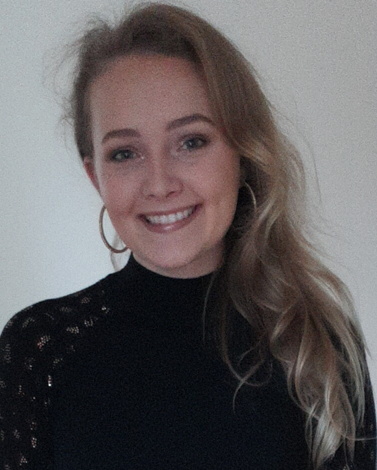It’s been a long two years of foundation training, projects, portfolios and all those hours… DONE. Some doctors choose to go straight into specialty training, but each year, more and more people are choosing to do an F3 year.
Now that you're coming up to completing your F2 year, are you unsure of what to do next and which specialty to pursue? If you're thinking of taking an F3 year, be inspired and have a read of our Q&A with Dr Cheetham.

Tell me a little about yourself:
I’m Charlie, I’m 25 years old and I am currently working as a locum senior house officer in forensic psychiatry. Looking at how I ended up where I am now amuses me. I am not someone who always dreamed of becoming of doctor; the sciences were my best subjects at school and I loved working with people and have always found people fascinating, so my parents encouraged me to pursue Medicine (very original, I know). I studied at Hull York Medical School and graduated in 2018.
A work-life balance is defined as “the amount of time you spend doing your job compared with the amount of time you spend with your family and doing things you enjoy”, and the latter part has always been of the utmost importance to me! I love spending time with my family and friends, being outdoors, cooking, and anything dog-related…
What did you specialise in and what areas were you interested in in Medicine?
Throughout med school, the two areas that I enjoyed the most were Dermatology and Psychiatry. I’m well aware that these two are often the most un-liked (even hated!) specialties among junior docs.
Early on in my foundation training I realised that the main reason I liked Dermatology was because I was good at it, rather than me being genuinely interested in looking at people’s naevi and ulcerated legs (no offence to any prospective Dermatologists!). Mental health has always been a strong passion of mine, both in terms of increasing awareness of mental health and illness, and helping people who are struggling. Furthermore, I have always had an utter fascination with the mind; how and why we think and behave the way that we do… what it is that makes us who we are as individuals.
My rotations during F1 and F2 were: Surgery (we covered General, Urology, Breast and Vascular), Stroke/Neurology, Cardiology, Geriatrics and Ophthalmology. My final rotation of F2 should have been Psychiatry, but due to Covid-19 and junior doctor rotations not going ahead, I ended up doing 6 months of Ophthalmology (apologies to any Ophthalmology lovers… it wasn’t for me). In the middle of my Ophthalmology rotation I did 2 months of Acute Medicine, which was during the first wave of Covid-19.
How did you feel about finishing your FY2 year?
I was relieved to finish my F2 year! For the most part I enjoyed my foundation training; I gained heaps of experience and met lots of wonderful people along the way. Reaching the end of F2 felt like reaching a brilliant milestone; after 18 years of school, 5 years of medical school, and 2 years of foundation training it was the first point in my life where I genuinely felt I was in control of choosing what I did next.
I had always planned on taking an ‘F3’ year following completion of F2, largely to give myself a break from what I feel are the mundanities of medicine: fighting to complete the required number of ‘CBDs’ or clinical skills; chasing down consultants to complete sign-offs; attending mandatory teaching that you’re not particularly interested in; and having to work unsociable hours without any say in the matter.
Because I knew I was going to do an F3, I had already made the decision not to apply for any specialty training during my F2 year. In hindsight doing an F3 has been the best decision in terms of career planning and progression.
What did you have planned for your F3 year?
At the end of F2 I had experienced different surgical specialties, which I knew weren’t for me, and I’d also done a good amount of medicine. I enjoyed medicine overall but I didn’t feel a strong pull towards any of the specialties in particular. Furthermore, the ‘negatives’ of pursuing medical specialties seemed to outweigh the ‘positives’ for me personally.
My original plans for F3 were to work as a locum doctor for a few months/half the year, and then to travel. I had always wanted to locum because of a) having more freedom and say in your work and b) the money (let’s be honest!).
With Covid meaning my travelling plans went down the drain, I accepted that I would be working within the UK. I have friends who secured long-term jobs in New Zealand and Australia despite Covid, so their F3 plans went ahead, apart from the fact they weren’t able to travel back to the UK intermittently as planned to see family. Doing a long-term job abroad wasn’t something I was interested in, but it’s reassuring to know that despite the pandemic, it’s still possible.
I was disappointed not to have been able to complete my Psychiatry rotation in F2, so this was one of my main goals of F3; to experience Psychiatry in one form or another, to allow myself the opportunity to see if I enjoyed it as much as I thought (and hoped!) I would.
Thankfully my agent (Gavin you are wonderful!) was able to secure me a long-term post at a forensic psychiatry unit. I have been working there for 8 months at the time of writing. Psychiatry is a fascinating field and shortly after starting working there I felt this is what I’m meant to do.
Have your future career plans changed now that you’ve done an F3?
Yes, they have. As I have mentioned I find Psychiatry fascinating, but after spending more time working in the field, I have come to realise that Psychiatry isn’t the specialty for me (I’m aware there is a pattern emerging).
I was sure it’s what I wanted to do before I experienced it. But I realise that if I hadn’t done an F3 year, and hadn’t had this opportunity to experience Psychiatry, I would have ended up applying for Core Psychiatry Training anyway. So, I am really grateful for my F3 experience as it has brought even more clarity on what I want to do with my career. Since this realisation I have been exploring all my options, both within and outside of Medicine.

When you have had questions about which direction to go in, what support did you find that helped you?
- Responsible Officer – I also wanted to speak with someone who had a lot of experience within Medicine, who might know about all the various routes you can take. I reached out to my agent who pointed me in the direction of Holt Doctors’ Responsible Officer Jonathan Brooks. Speaking with Jonathan was a very positive experience for me; he was open-minded, acknowledged my thoughts and ideas and offered sound advice. Most of all he was utterly encouraging.
- Supervisor – luckily for me, my supervising consultant at work has been a fantastic support.
- Google – the internet is a fantastic online encyclopaedia. There are so many helpful websites that are tailored for doctors who are feeling ‘stuck’ and are unsure of where to go next after foundation training. Make sure you are aware of all the possible ‘traditional’ routes in Medicine:
- For medical specialties
- For surgical specialties
- The University of Edinburgh also has a comprehensive list
- Career coach – one thing that kept cropping up in blogs from doctors who have pursued unconventional medical careers, is career coaching. I would highly recommend Medic Footprints for finding a coach. If you’re unsure about what you want out of your career or which route to go down, then career coaching can be extremely helpful. Talking to a supportive and non-judgmental person who doesn’t come with the opinions or personal bias of families/friends/colleagues, can work wonders. Two sessions with my career coach was all I needed to become clearer on my desired career path.
What advice would you offer to the FY2 doctors who are not sure what to do come August?
Life is short, and if you choose to pursue traditional medical/surgical training then it is a lengthy process. This can mean people feel they want to get it over and done with, which I completely understand if you’re someone who knows what they want to do.
If you’ve reached the end of F2 and are unsure of what to do, then the most important piece of advice I can give you would be to understand what you want out of your career. Take some time to yourself to write down a list of:
- Your skills/strengths – what are you really good at in terms of your working life? What have people complimented you on during med school or your foundation training?
- Your values – what you want to ‘get out of’ your career? What features would make up a ‘perfect’ job in your eyes? It can be anything from good pay, to being your own boss, to having routine, to being creative. The most important value that should be at the top of everyone’s list is your enjoyment and fulfilment in the job.
- Compare – look at how many of those values are currently being met by your current working situation. If you were to choose one path, would those values be met? If you were to choose a different path, would more of your values be met? What job options are there for combining your skills and your values? It’s unlikely that 100% of your values will be met in any job that you do, so it’s about achieving balance.
In order to aid you in exploring your options and reaching a decision on what to pursue:
- Do an F3 year – and even an F4! This will give you a chance to explore your options at your own pace, and will give you a bit of a break after completing busy foundation training. I know a lot of people worry that when they do their F3, they’ll be ‘jobless' and won’t find work; you will! There is plenty of locum work out there and Holt agents are the best at finding it for you.
- Locum – this is the best way in which you’ll gain the most control over your place of work, specialty and pay. If you start a job and hate it, you can leave with minimal contractual restrictions and move onto something better.
- Seek support – talk with your family/friends/colleagues about any uncertainties you have. If you don’t find that helpful, or don’t feel entirely comfortable doing so, then seek out a career coach, your Responsible Officer, or a senior doctor whom you trust.
- Be honest with yourself about how you’re actually feeling inside – if you have any doubts at all about the route you were planning to take, or the route you’re already taking, LISTEN TO THOSE DOUBTS. You don’t want to get further on in training and end up being really unhappy. Don’t settle! The perfect (or near-perfect) career for you does exist… you just have to find it.
- Say YES to everything – the more experience you gain, the better. Try a little bit of everything if you can; even if it’s a specialty you thought you hated. You might surprise yourself! Whatever you embark upon, you can always change your mind and that’s okay.
As a final point, if any of what I’ve said resonates with you and you’d like to talk to me, I am more than happy for you to get in touch with me at [email protected].




